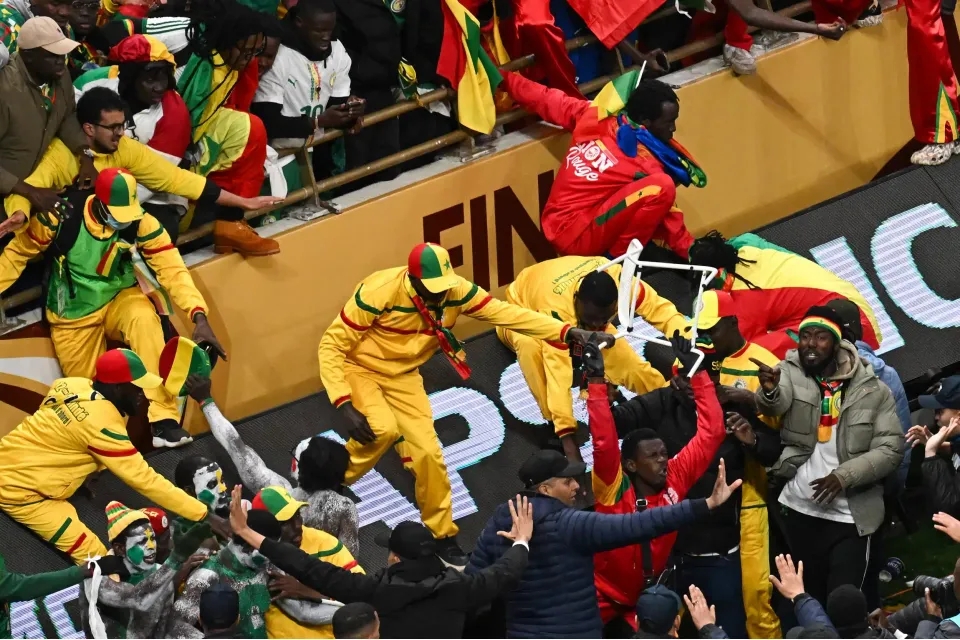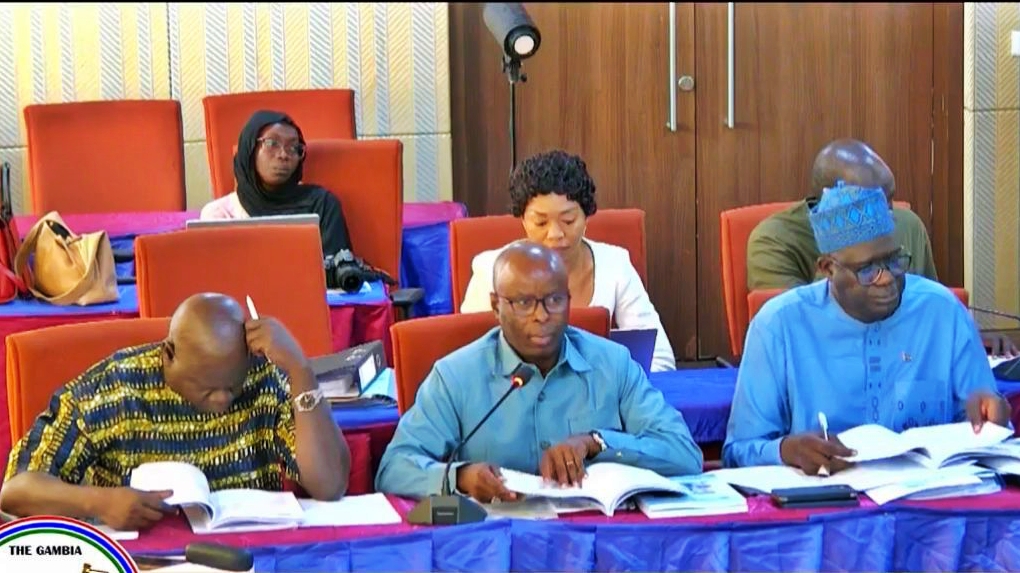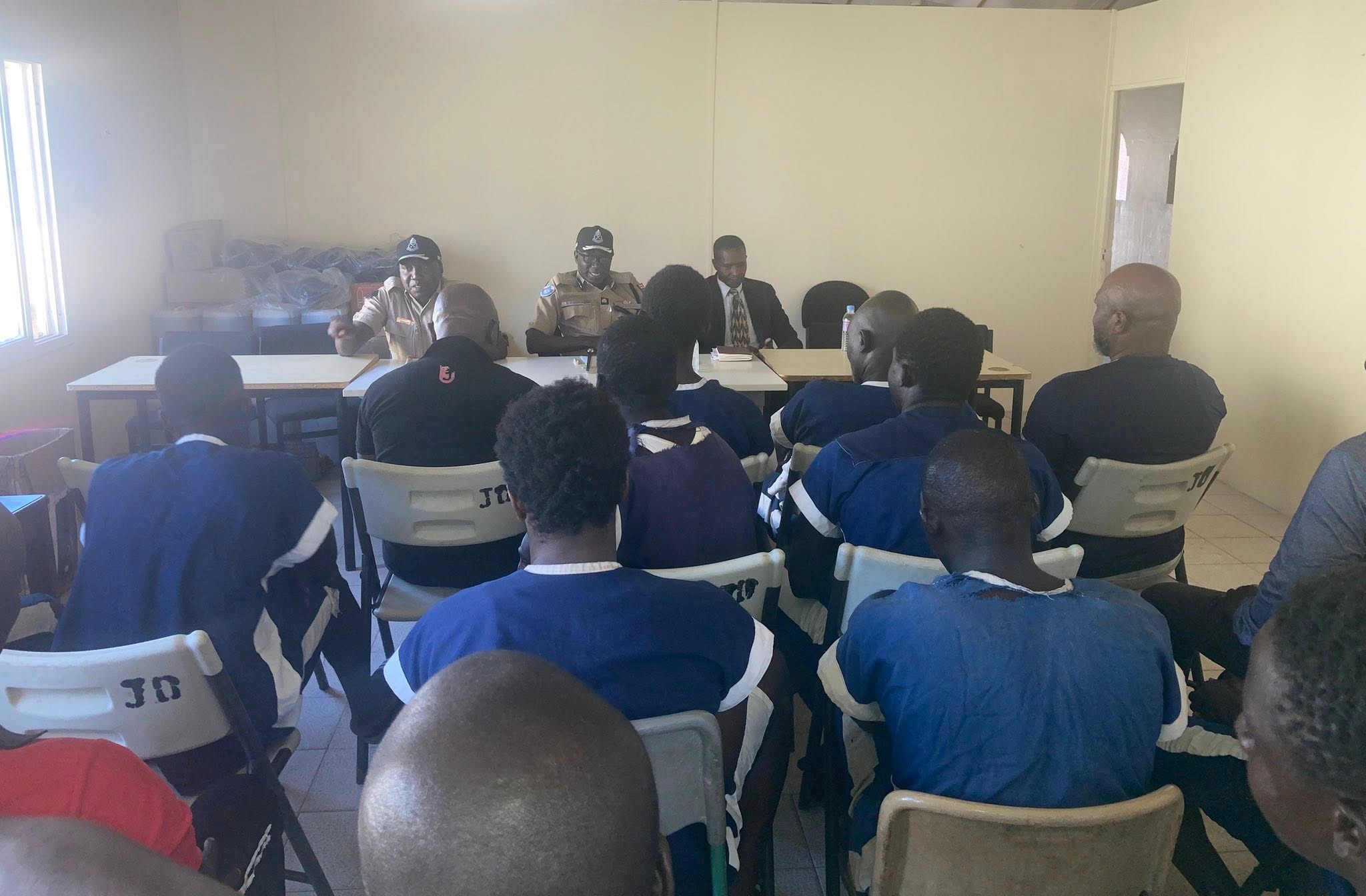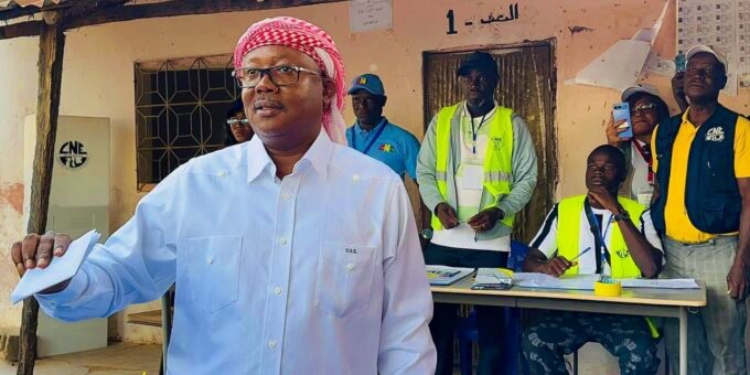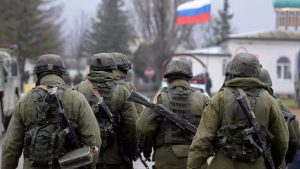Gambiaj.com – (Gabú, Guinea-Bissau) – Incumbent presidential candidate Umaro Sissoco Embaló cast his vote this Sunday, November 23, 2025, declaring his certainty of winning the general elections and urging all Guineans to vote en masse to fulfill their civic rights.
After fulfilling his duty at polling station no. 1, electoral district 85, electoral constituency 16, in the Nema 1 neighborhood of Gabú city, Embaló told journalists he was confident in a peaceful process and a second-term victory.
“I am the figure who will serve a second term, and I hope that the electoral process will proceed calmly and peacefully,” the outgoing President stated, appealing for a large voter turnout.
Focus on Stability and Electoral Process
Embaló, who seeks to be the first Head of State in Guinea-Bissau to be voted in office after completing a full five-year term, expressed hope that his success would solidify a trend of political stability in the nation, which has a long history of political instability.
“There will always be a first time,” Embaló said, referencing the country’s turbulent political past. “All those who came before failed to finish their terms; in fact, José Mário Vaz did manage to and even participated in the election process for a second term, but he lost.”
He dismissed the notion that political stability would be a challenge in the next five years, asserting, “Guinea-Bissau has already achieved political stability and will continue with the same momentum.”
The candidate also warned that all presidential candidates, “including myself, who will win the election,” are strictly prohibited from demonstrating during the voting process.
CNE Manages Nationwide Polls
The general elections officially began with polling stations opening nationwide at 7:00 AM and set to close at 5:00 PM.
The National Electoral Commission (CNE) mobilized 3,728 polling stations, distributed across the country and the diaspora (Africa and Europe). The CNE received two million four hundred thousand ballot papers from the National Press (INACEP) for distribution to the 29 electoral districts.
Embaló also clarified the process for special votes, explaining that ballots from members of the defense and security forces, as well as those who voted early, are sealed and sent to their respective electoral districts. They will be opened and counted only after the closing of the main voting process, he explained.
More than 200 international observers are monitoring the electoral process to ensure transparency. This group includes 120 observers from the Economic Community of West African States (ECOWAS), 30 from the African Union, and 22 from the Community of Portuguese-Speaking Countries (CPLP), among others.



